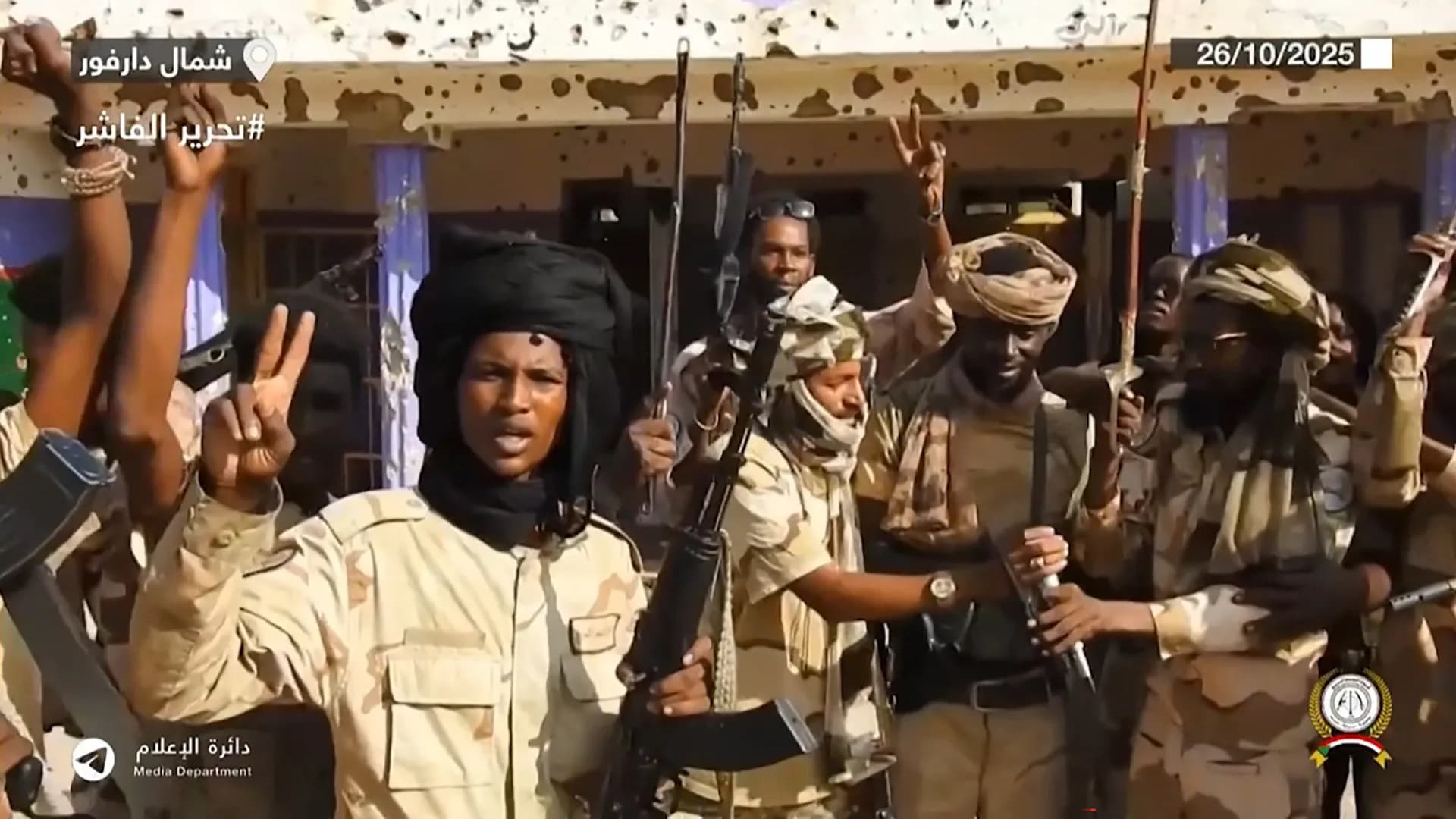We're loading the full news article for you. This includes the article content, images, author information, and related articles.
The fall of the final army stronghold in Darfur triggers fears of genocide and a new refugee crisis, posing a direct threat to regional stability and Kenyan-led peace efforts.

Credible and horrifying reports of ethnically motivated mass killings are emerging from El Fasher, the capital of North Darfur, following its capture by the paramilitary Rapid Support Forces (RSF) over the weekend. The Joint Forces, allied with the Sudanese Armed Forces (SAF), issued a statement on Tuesday, 28 October 2025, accusing the RSF of executing more than 2,000 unarmed civilians between 26 and 27 October. The fall of the city, the last SAF stronghold in the vast Darfur region, marks a devastating turning point in Sudan's brutal civil war and has ignited urgent international warnings of genocide.
Independent analysis from Yale University’s Humanitarian Research Lab, released on Tuesday, corroborates these fears. Using satellite imagery and open-source intelligence, the lab found evidence consistent with mass killings, including what appear to be "door-to-door clearance operations." The report states the city "appears to be in a systematic and intentional process of ethnic cleansing of Fur, Zaghawa, and Berti Indigenous non-Arab communities through forced displacement and summary execution." Satellite imagery revealed objects consistent with human bodies and reddish ground discoloration near RSF vehicles. The lab concluded that the RSF's actions "may be consistent with war crimes and crimes against humanity and may rise to the level of genocide."
The United Nations has echoed these alarms. On Monday, 27 October 2025, UN High Commissioner for Human Rights Volker Türk stated his office was receiving "multiple, alarming reports that the Rapid Support Forces are carrying out atrocities, including summary executions." The UN Office for the Coordination of Humanitarian Affairs (OCHA) reported being horrified by credible accounts of summary executions, attacks on civilians along escape routes, and house-to-house raids. The violence has already displaced tens of thousands in just a few days, with the International Organization for Migration (IOM) reporting over 33,000 people fled between 26 and 28 October.
The catastrophic events in El Fasher pose a direct and growing threat to the stability of the entire East Africa region, placing significant pressure on Kenya's diplomatic and security interests. The immediate concern is a new, large-scale refugee crisis. Civilians fleeing the violence in Darfur are likely to move towards Chad and South Sudan, further straining resources in countries already hosting vast numbers of displaced people. This influx threatens to destabilize a fragile region and could have knock-on effects for Kenya, which remains a cornerstone of regional refugee response and security.
Furthermore, the RSF's consolidation of power in Darfur represents a severe blow to diplomatic peace initiatives, many of which have been championed by Kenya. As a key member of the Intergovernmental Authority on Development (IGAD), Kenya has consistently called for a negotiated settlement and an African-led peace process. In a statement from 15 September 2025, the Kenyan government reiterated its commitment to Sudan's unity and territorial integrity, explicitly rejecting any attempts to divide the nation. The RSF's military victory in Darfur could entrench de facto partition, undermining these diplomatic efforts and potentially prolonging the conflict, which Nairobi has warned poses a regional threat by allowing extremist networks to thrive in the power vacuum.
The atrocities reported in El Fasher are a terrifying echo of the genocide in Darfur in the early 2000s. The RSF, commanded by General Mohamed Hamdan Dagalo, evolved from the Janjaweed militias, which were responsible for the mass killings of non-Arab ethnic groups two decades ago. Human rights organizations have warned that the international community's failure to act decisively has allowed history to repeat itself. Amnesty International noted the RSF's history of "ethnically targeted attacks against non-Arab communities" and urged immediate action to prevent further atrocities.
The civil war, which erupted in April 2023 from a power struggle between SAF chief General Abdel Fattah al-Burhan and Dagalo, has created the world's largest displacement crisis, with over 14 million people forced from their homes and millions on the brink of famine. The capture of El Fasher, a city that was home to over 1.5 million people including hundreds of thousands of internally displaced persons, gives the RSF control over all five state capitals in Darfur. The SAF confirmed its withdrawal from the city on Monday, stating it was to prevent further civilian deaths and destruction.
International condemnation has been swift but, as of Wednesday morning EAT, has not translated into concrete action to halt the violence. The European Union, United Kingdom, and Türkiye, among others, have condemned the attacks and called for civilian protection and humanitarian access. However, with humanitarian access completely severed and aid workers themselves being targeted, the fate of hundreds of thousands of civilians trapped in the city remains unknown. FURTHER INVESTIGATION REQUIRED.
Keep the conversation in one place—threads here stay linked to the story and in the forums.
Sign in to start a discussion
Start a conversation about this story and keep it linked here.
Other hot threads
E-sports and Gaming Community in Kenya
Active 9 months ago
The Role of Technology in Modern Agriculture (AgriTech)
Active 9 months ago
Popular Recreational Activities Across Counties
Active 9 months ago
Investing in Youth Sports Development Programs
Active 9 months ago
Key figures and persons of interest featured in this article